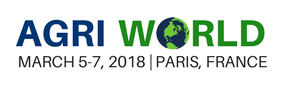
John M Jemison
University of Maine, USA
Title: Innovative practices for dairy and potato farmers to adapt in increasingly variable climatic conditions: Lessons learned in Maine
Biography
Biography: John M Jemison
Abstract
Maine farmers have become increasingly concerned about variable weather conditions affecting current and long-term productivity. In 2011, we conducted 15 focus groups in a program called ‘Assessing Maine’s Agricultural Future - 2025’ and we asked farmers: What changes are you making on your farm relative to recent weather patterns? As one might expect, responses ranged from challenging us that weather is indeed more variable now than previously, to others saying that they had adopted numerous practices including no-till production, purchased irrigation equipment and installed tile drainage. Fruit producers, particularly apple and blueberry growers were most concerned about variable weather, while potato and
dairy producers seemed least concerned and more entrenched with their production methods. Since then, we have developed a focused applied research and extension outreach effort to dairy and potato growers to work on improving soil quality to increase climate resilience. While cold wet soils were once thought to prohibit, no-till production in Maine, some dairy farmers even in northern parts of Maine have adopted the practice. We recently surveyed early adopters to find out why they changed and sampled fields to assess soil health. While most mentioned reduced fuel use, labor and time as key drivers, some discussed improving soil quality. Interestingly, we asked farmers to identify fields they wanted information on soil health and to tell us which fields they thought would have the best and worst soil health scores. They were correct, only 40% of the time indicating that they don’t fully understand soil quality. Our efforts to make potato production systems more resilient have centered on reducing tillage where possible (such as one-pass hilling), evaluating the use of nurse crops to protect soils before
plant emergence, adopting longer rotations and integrating crop and livestock farms. Key field experimental results will be highlighted in the presentation.

